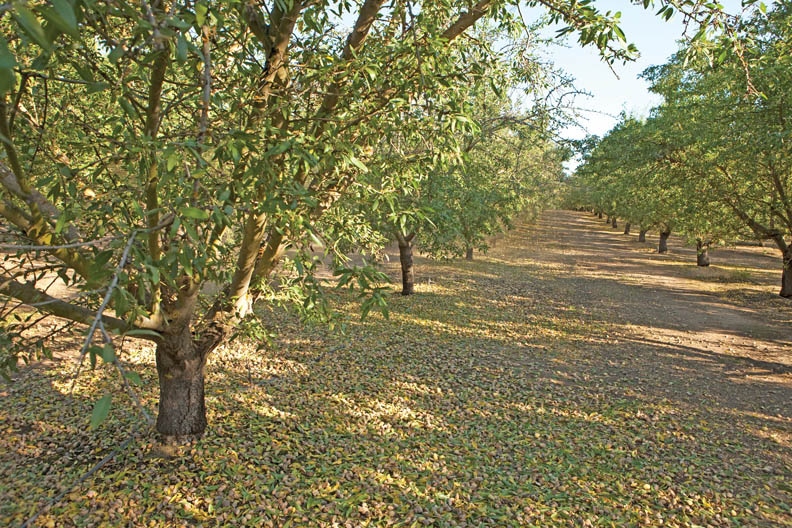February 15, 2013

According to apiculturist Eric Mussen of the University Of California Davis Department Of Entomology, there might not be enough honey bees to pollinate California’s 800,000 acres of almonds this year.
“We need 1.6 million colonies, or two colonies per acre, and California has only about 500,000 colonies that can be used for that purpose,” Mr. Mussen said. “We need to bring in a million more colonies but due to the winter losses, we may not have enough bees.”
California supplies 80 percent of the world’s almonds and the National Agricultural Statistics Service predicts that this year’s crop will yield 2.10 billion meat pounds, with a value of approximately $3 billion USD.
(See related: Honey bee shortage alarms California almond industry)
“This is not just a crisis in California,” said Mary Ross of the Mohawk Valley Trading Company where they specialize in raw honey. “this is happening all over and everybody should be alarmed. Honeybees account for 80 percent of all insect pollination. Without them, there would be a dramatic decrease of fruits and vegetables worldwide.”
There are a myriad of reasons why the honey bee population is declining in North America and Europe and they all fall under the term Colony Collapse Disorder (CCD) a phenomenon in which worker bees from a beehive or European honey bee colony abruptly disappear.
(See related: Honey bee losses defy solitary explanations)
“Last year was not a good year for honey production in the United States,” said Mussen an apiculturist in the UC Davis Department of Entomology since 1976. “and it could be one of the worst honey production years in the history of nation, although it’s been pretty rough in some of the previous years. Usually when we’re short of nectar, we’re short on pollen, and honey bees need both. So, 2012 was a bad year for bee nutrition.”
“CCD is a very broad term.” Ross continued. “It could be caused by a combination of, but not limited to malnutrition, pesticide use, varroa mites or GMOs among other things. However, I think that the European Commission proposal to suspend the use of three neonicotinoid pesticides on any agricultural crops that attract bees, is a step in the right direction.”
The European Commission has proposed prohibiting the sale and use of clothianidin, thiamethoxam and imidacloprid on crops attractive to bees, including sunflower, rapeseed, corn and cotton. It would also ban sale and use of seeds treated with the three pesticides. Exceptions would include crops and seeds that do not attract bees and winter cereals. The Commission will review the ban in two years.
(See related: Honey bee conference spotlights need for more research)
You May Also Like




